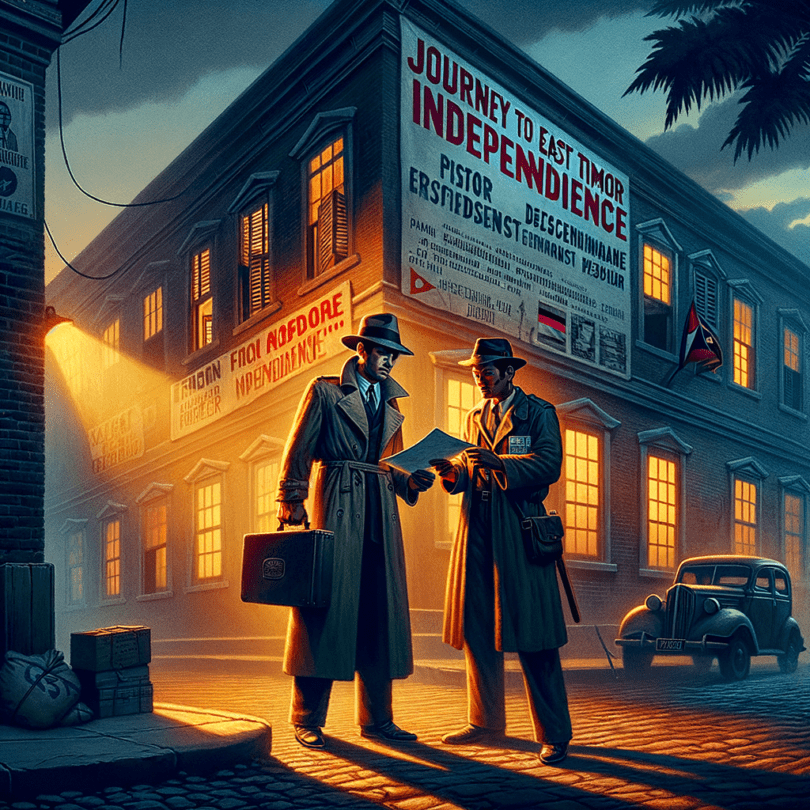“The Idealist” is the eighth book by renowned Australian author Nicholas Jose, blending political thriller elements with a thoughtful and reflective style. Set around the time of East Timor’s 1999 self-determination referendum, the novel focuses on a character named Jake Treweek. Jake, formerly a soldier, now works as a Defence analyst tasked with gathering intelligence in Timor. Under a false identity, he poses as a plumber with AUSAID, navigating a precarious environment.
The story unfolds with two dramatic ironies at play. The first is common to historical fiction: we, the readers, know how the broader events will end. The 1999 referendum brought violence but not the massacre some feared, and by 2002, East Timor gained independence. Australian-led UN troops, particularly INTERFET, played a vital role in controlling unrest among militias.
The second irony is rooted in detective fiction. We learn early on that Jake met an untimely death in what appears to be a suicide in Washington, D.C. His wife Anne discovers him in their car with exhaust funneled inside. The novel starts as Anne shares this with their childhood friend, David, a successful barrister in Sydney. Raised together in Adelaide’s elite circles, their group also included Henry Hunt, now Australia’s Foreign Minister. Anne suspects foul play and asks David to look into Jake’s death.
However, the novel doesn’t follow a typical investigation path. It instead zooms in on Jake, especially during the crucial moments surrounding the East Timor referendum, giving us his perspective.
“The Idealist” reads like a classic spy novel, complete with potential double agents, exotic settings, and political intrigue. Set just as the internet began influencing communication, it exudes a nostalgic charm for the espionage era. But Jake differs from the typical stoic agent; he’s a farm boy out of his depth in some situations, and he romantically engages with a Timorese woman, navigating the complexities of being a “white savior.”
Tension builds as Jake reports truths his superiors don’t want to hear. His candid disclosures to a US counterpart put him at odds with officials in Canberra. This novel shares traits with Jose’s earlier works like “The Red Thread” and “Original Face,” integrating detective and political thriller elements while enriching the dialogue on Australian-Indonesian relations.
For many Australians, any East Timor narrative recalls the 1975 killing of journalists during Indonesia’s invasion—events that have loomed large in the nation’s consciousness. However, “The Idealist” is more likely to remind readers of Christopher Koch’s “The Year of Living Dangerously,” albeit with less bravado among its protagonists.
The book explores the group dynamic of Jake, Anne, David, and Henry, friends from Adelaide’s affluent suburbs, subtly linking through their formative experiences. Jake’s modest background contrasts with his friend Henry’s political connections, yet by 1998, Henry is a key player in foreign affairs tackling East Timor’s crisis, touching on real-life parallels with politicians like Alexander Downer.
“The Idealist” scrutinizes Australia’s motives, probing its drastic policy shifts. While it played a commendable role in East Timor’s path to independence, its earlier stance and subsequent negotiations around the Timor Gap’s oil reserves paint a complex picture, raising questions about economic motivations overshadowing noble intents. The struggle over natural resources, lingering geopolitical tension, and Jake’s own journey provide a layered narrative backdrop.
Drawing on his diplomatic experience, Jose crafts a sharp political novel with echoes of Cold War storytelling and Le Carré’s sophisticated narrative. At its heart, “The Idealist” contemplates the role of ideals and the impact of political decisions on everyday lives, emphasizing the unpredictable outcomes of personal convictions in global contexts.

